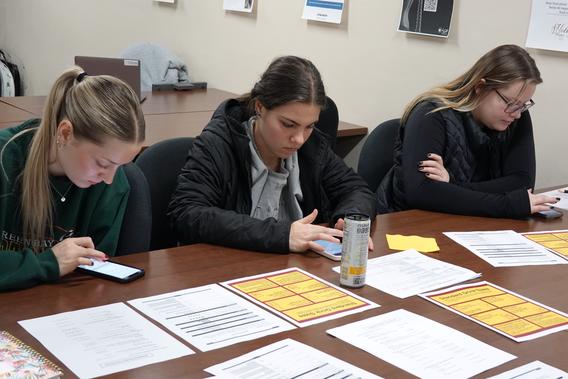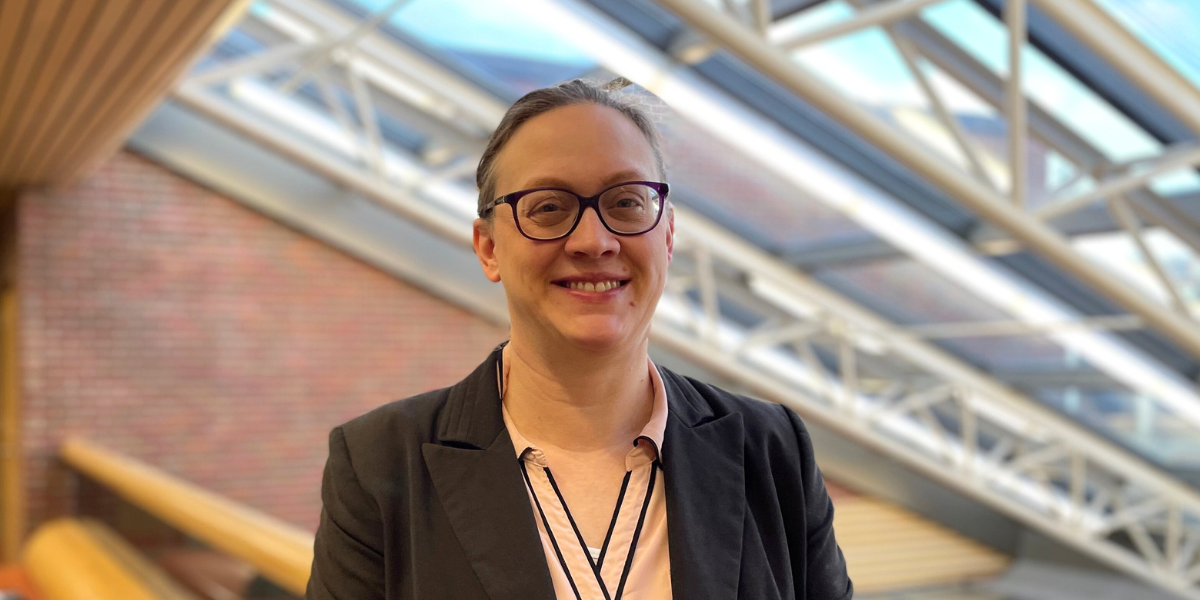Associate Professor Jessica Hanson is passionate about community-engaged research. She focuses on developing, implementing, and evaluating public health interventions within American Indian communities.
Hanson seeks to bridge the divide between academia and society. She wants her findings to have real-world applications. “Often, we write papers, and no one sees them,” she explains.
For almost 20 years, Hanson has been building relationships with Great Plains tribes through her research. Part of building relationships is continually engaging communities to ensure partners are empowered and providing input throughout the process. Tribes will also own the data collected and have a say in how it is used.
With $381,149 in funding from the National Institutes of Health (NIH) Research Enhancement Award, Hanson and UMD colleagues started a three-year project titled, “Use of Ecological Momentary Assessments to Evaluate Drinking in Native Women.”
The researchers are collecting information about alcohol consumption, motives and risk factors in women from one Great Plains tribe. “The goal is to get better data about Native people, particularly women,” Hanson says.
Hanson points out that society has stereotypes that risky drinking happens more often in certain populations. “We don’t have the data to prove that assumption,” she says.
Undergraduate research experience
The research team includes Associate Professor Amy Versnik Nowak, Hanson’s public health colleague, as well as Associate Professor Rebecca Gilbertson from the Department of Psychology, making this an interdisciplinary project.
Undergraduate public health and psychology students will be involved in every step of the research, from testing the methods to analyzing the data. Versnik Nowak’s "Public Health Communication” and "Community Health Methods” classes will create informative, visually appealing, and culturally appropriate educational materials about health risks related to alcohol use. They will also design materials to help disseminate research findings.

Data collection with tribal nations will occur via ecological momentary assessment (EMA), a method that hasn’t been used with Native communities, according to Hanson. Over the course of a month, participants will receive several text messages prompting them to respond to a series of questions. The idea is to capture data in the moment at multiple points throughout the day.
Participants (who will be compensated for their time) will respond to surveys about whether they drank, and the type and quantity of alcohol. Context is also recorded—whether they were drinking alone or with friends. Hanson says capturing information about both drinking and non-drinking behavior is key, as data gathered about the latter could be useful in intervention and prevention work.
The NIH is encouraging undergraduate research because it’s a formative opportunity for students. Participating in research impacts student success. It helps to develop a community of scholars with creativity, critical thinking and problem-solving skills.
Students will also benefit from the relationships developed during the process. “They’re not just working with faculty, they are working with each other,” says Hanson. “Building relationships with both faculty and peers will hopefully reinforce a sense of community in our programs and increase self-efficacy as our students go out into the real world.”
